Tyre manufacturer Apollo Tyres has been looking to collaborate with sporting properties to attract a global audience. In 2013, Apollo Tyres partnered with football club Manchester United, and since then, has leveraged this partnership in several ways. The latest is an esports tournament – Apollo Tyres United League – played on PES (Pro Evolution Soccer) 2021 for mobile across India, Australia, South Africa, Middle East, South East Asia, Sri Lanka and Nepal.
The brand's focus on sporting partnerships also led it to appoint Remus D’Cruz as head of sports marketing in 2019.
We caught up with Satish Sharma, president, Asia Pacific, Middle East and Africa, Apollo Tyres, and D’Cruz, to learn more about this association, its tie-up with brand ambassador Sachin Tendulkar, whether it wants to on-board Indian Olympians, its marketing associations outside of sport, learnings from the pandemic and more…
Edited excerpts:
What's the idea behind the foray into esports now?
Satish Sharma (SS): It’s relatively a new sector. The pandemic has accelerated all things related to digital and helped brands connect with their community and fanbase.
We found that esports is a relevant format for us. We learnt that it is growing at a very handsome rate. We happen to be the third-largest market when it comes to gaming and are growing. Gamers’ fanbase was 300 million in 2019 and is likely to be 440 million by 2024. So, all the statistics seem to be making sense.
It also expands our reach phenomenally. With the physical format, we were in tier-one cities. Esports allows us to penetrate deeper into the country into the tier two and three towns where most of the gaming action is happening. It’s also aligned with what we want to do with our market share concerning our growth strategy. It’s also well-aligned to us activating the Manchester United concept. We want to amplify it and take it way beyond what it is right now. We are in a cricket crazy nation; this allows us to increase the sport's penetration. It was a natural progression for us.
The partnership with Manchester United...tell us more about that?
Remus D’Cruz (RD): When you look at sponsorship in a product category like ours, it’s very important to win a share of heart because purchases don’t happen daily. When they do, it’s important to not just be present in the consumer’s mind but also their heart. United (Manchester United) is one of the most loved clubs in the world with a huge fan base in India. Add to that, football is growing as a sport in India. Hockey was for our grandparents, cricket is for us, and football is for the next generation. So, keeping that in mind and the business objective of growing in the two-wheeler and passenger vehicle segment for us, activating our association with United is very important.
What we have done is looked at it in two levels. The fans are already there and we need to ensure we engage with them. Some fans play football and for that, we have a programme called ‘United We Play’, a grassroots football development programme. It started just before the pandemic and then took it to the digital platform. Along with Manchester United Soccer Schools, we ran a programme to reach out to the footballing community with the gratification being players who deserved it would get an opportunity to train with the under-18 squad at United and also travel to Old Trafford. We are continuing with this programme this year too and expanding it to rural India as well.
For the casual fan who doesn’t play the sport, but is engaged, we have tied up with supporter clubs across the country. Pre-pandemic, we were part of the fan screening for games and run activations there. Over the last year, we have done three to four virtual fan parties and got them to interact with football legends like Andy Cole, Louis Saha, Dwight Yorke, Michael Silvestre etc. We have given them a 'money can't buy' experience while sitting at home. Last year’s ‘United We Play’ winners got to interact with Marcus Rashford and experiences like these can’t be put a dollar to.
We have also got a lot of content from United and pushed it out on social media. We also have co-branded tyres as well for four-wheelers.
And with sustainability becoming a big part of our conversations, we want to make sure our tyres can be used once the life cycle is over, and so we have ‘Go The Distance’. We use recycled tyres at artificial turfs which need rubber crumbs. Those come from us. We are rolling this out across the country and hopefully will take this to other sports.
In 2018, you got Tendulkar as the brand ambassador from a rival tyre brand. Does he continue to remain the brand ambassador?
SS: Yes, very much. If you have seen less of him, it’s probably because of the pandemic where we can’t get him to physically interact with the audience.
But he’s done a lot on the digital forum. He’s inaugurated our plant in Chennai, a facility in Andhra Pradesh, had conversations with our dealers, he’s helped us in doing stories with our motorcycle products and SUV tyres.
RDC: He’s also part of our TVC which gets a fair bit of air time and was being used during the IPL this year and there should be some more visibility of it in the future. We do a lot of stuff on digital through his channels and our channels too. He’s been a part of our safety campaigns too.
During and post the Olympics we have seen a lot of buzz around sports and the athletes. Has Apollo done anything here and is it supporting Indian athletes?
SS: This particular edition of the Olympics will get a lot of corporates to start participating. It’s been pivotal and India has performed so well at not only the Olympics but the Paralympics too. As a brand, the ‘Go the Distance’ philosophy sits very well. For this particular Olympics, unfortunately, we were not part of it and were unaware that India would put up such a nice show. Going forward, our contingent is going to start garnering a lot of corporate support and I’m hoping Apollo will also partner in this journey.
RDC: At a top level, we haven’t looked at any athletes. If we’re looking at access to sport, the first step is making sure at a grassroots level we can provide some support. We have our ‘Go the Distance’ programme that we run with the ISL, where we look at sports personalities who have used sports to build communities. So, rather than going from the top, we started at the bottom so that we could help them with the journey.
Outside of sport - what do your marketing efforts look like?
SS: We have plenty of action. Broadly our marketing revolves around the 3R strategy – Rural, Retail and Range. Even the sporting tie-ups are based around this. For example, esports is about tier-two towns, which marries very well with our rural foray. We also plan to have rural Mahotsav and rural Olympics.
With regards to the retail aspect, we are one of the largest branded retail outlets in the country across categories – passenger cars, commercial vehicles or agriculture tyres, and that’s what we continue to consolidate. The idea is to digitise them and give the consumer a seamless experience wherever they may be travelling in the country.
On the range, we entered the two-wheeler category around five years ago. The idea is to provide the whole range to every kind of mobility person in India and around the world. India is growing from all aspects – whether it’s cars, commercial vehicles, tractors, infrastructure equipment, and is going to grow for a long period. To be the number one brand in the country we have to have a range.
Is packaging something you’re looking at, considering most of your tyres come without any plastic packaging?
SS: We de-packaged earlier itself. When tyres were poly-wrapped, there was a lot of plastic in use especially in countries like India and the Middle East because of the dust factor. But we took a call early on to say we won’t be using plastic.
We believe wrapping a tyre doesn’t make sense. On the other side of the supply chain, from a vendor base, we insist on eco-friendly packaging material.
The pandemic - how did it impact the company, how challenging have the last 18 months been, and what have your learnings been?
SS: It’s almost been two years of the pandemic. We got impacted in the first quarter of it. During wave one we saw an impact in April and May before a gradual revival which started in June for us.
Thereafter, every quarter was better than the previous quarter. By the time we reached quarter four, it was an all-time high. Now, as we entered 2021, many believed that the economy would take off, but then came wave two. So, April and May were weaker again. Although wave two didn’t destroy business as wave one did, we missed out on the upside of the economy springing back into business. Quarter two has been better than the first one, but results are yet to come.
Very broadly, there’s a challenge that commodity and raw material prices are going up across categories and it’s no different for tyres. We are trying to manage this as best as we can and pass the cost to the market as well as we can. The pandemic gave us a big shock, but there’s been a great revival.
In terms of learnings, the pandemic has been immense. We have spoken about sport in great detail, and you can see how events around the world have been managed differently, so we are doing the same with the business. We managed to reduce our fixed overheads – something that we never thought we could manage. We are more flexible in our way of working. These changes have come at a huge cost and a toll on human life, livelihood, fatigue, mental health and so on. We have also treated it as an opportunity and were able to bring out many properties to tackle these new issues to support our employees, trading partners, and supply chain stakeholders. Weaknesses have also been exposed while strengths have been highlighted. It’s about re-engineering ourselves for such volatilities.
How well prepared are you for wave three if it, unfortunately, does hit?
SS: We are well prepared. We have a strategy where wave two has taught us not to take anything lightly. We have imported concentrators in case our employees require them. We want to have medicinal and insurance support. We have formulated templates and models and how will they come into practice if wave three comes. We are better vaccinated now as a company. Dose one has been provided to 100% of the staff and 50% of the staff has received dose two. We are also getting dealers vaccinated and are going all out with the vaccination drive.
Open communication has been one more strength. Our chairman and vice-chairman have been present by talking to employees, boosting their morale and motivating them.
I don’t want to sound pompous but we are well prepared and we are hoping that the homework we have done will stand with us.
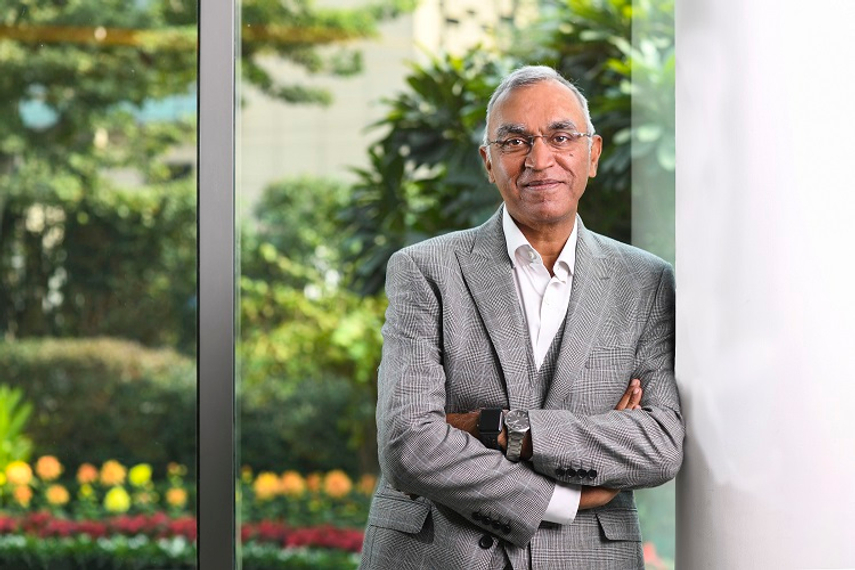



.jpg&h=334&w=500&q=100&v=20250320&c=1)
.jpg&h=334&w=500&q=100&v=20250320&c=1)
.jpg&h=334&w=500&q=100&v=20250320&c=1)




.jpg&h=334&w=500&q=100&v=20250320&c=1)


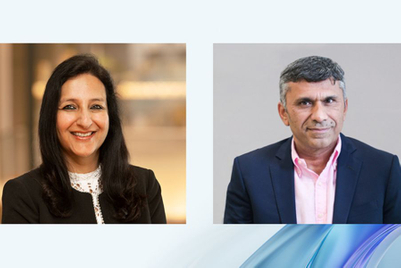
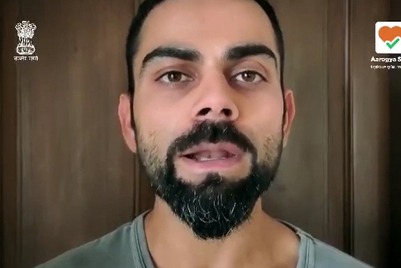
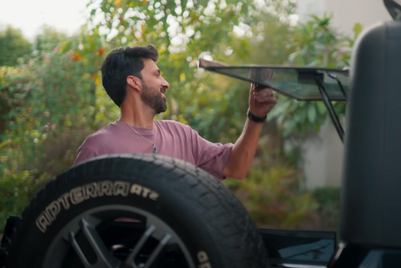
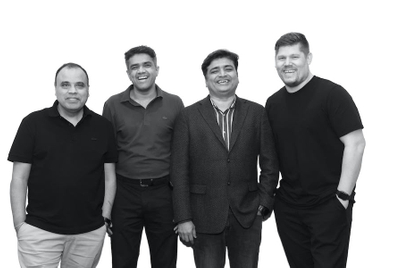

.jpg&h=268&w=401&q=100&v=20250320&c=1)


